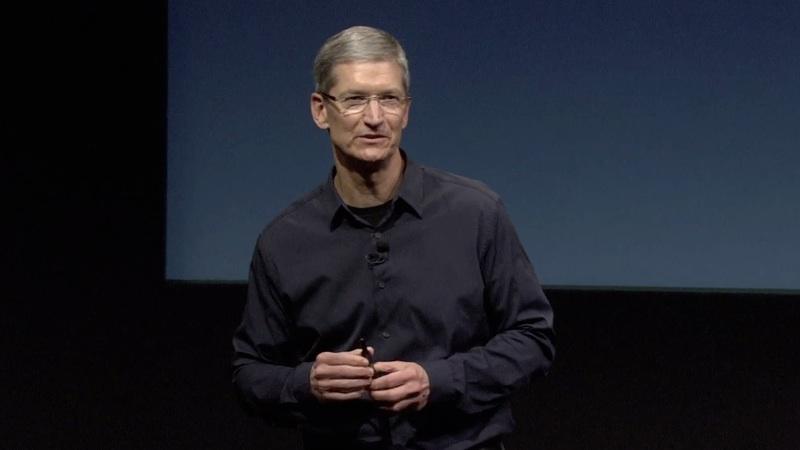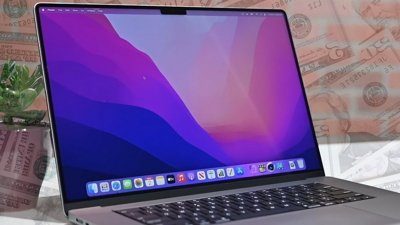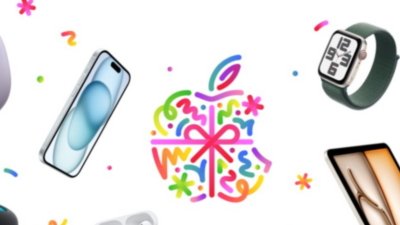Apple has acquired at least 23 firms over the last five quarters, but the purpose— and even the identity— of some of them remains a mystery. This is no accident.
Speaking to shareholders at a meeting on Friday, Apple's chief executive Tim Cook noted that his company has acquired 23 companies over the last roughly 16 months.
That time frame would appear to exclude all of the known acquisitions reported to have occured within 2012, including Chomp, Redmaticia, AuthenTec and Particle.
Apple's known acquisitions over the past five quarters
For its fiscal year 2013 (the accounting year that ended last September), Apple reported $496 million in net "payments made in connection with business acquisitions." Companies that Apple was reported to have purchased during that period include WiFiSlam, Locationary, HopStop, Passif Semiconductor, Matcha, Embark and AlgoTrim.
During Apple's Q1 2014 (the quarter ending December 2013), the company reported an additional $525 million in cash "payments made in connection with business acquisitions" in its quarterly 10Q filings. That was significantly more than the $496 million it had spent over the previous four quarters combined.
During that quarter, Apple was reported to have snapped up Cue, PrimeSense, Topsy, Broadmap and Catch.
Since the start of calendar 2014, Apple was also reported to have acquired SnappyLabs and Burstly. All together, that makes just 14 companies that Apple is known (or believed) to have acquired over the past five quarters.
Apple's secretive acquisition strategy
Cooks' allusion to "23 companies over 16 months" was made two months into the second fiscal quarter of 2014, and the actual acquisition dates of some companies are not known with precision, making it difficult to pin down exactly which acquisitions Cook was including in his numbers. However, by any measure Apple has managed to buy up at least nine more companies than the investigative and curious media (including AppleInsider) has been able to identify.
Cook made it clear in his comments to shareholders that Apple was not seeking to make the greatest number of acquisitions (or to pay the most money for them), but rather to make smart, strategic purchases whenever the circumstances arose.
Unlike Yahoo, Microsoft, Google and Facebook, Apple rarely ever announces that it has acquired anything. Instead, it typically only selectively acknowledges acquisitions after they've been reported, regularly issuing the boilerplate statement, "Apple buys smaller technology companies from time to time, and we generally do not discuss our purpose or plans."It's no secret that the identity of the companies Apple acquires often makes it apparent why the company bought them.
It's no secret that the identity of the companies Apple acquires often makes it apparent why the company bought them. Previous acquisitions ranging from Siri to LaLa (iTunes Radio) to AuthenTec (Touch ID) helped illuminate what Apple was working to deliver many months in advance.
The fact that a third of Apple's known, recent acquisitions involve maps and transit, for example, makes it obvious that Apple isn't giving up on Maps but rather has ambitious, aggressive plans to keep its offerings competitive with (or superior to) the rival offerings from Google and Nokia.
Cook highlighted Apple's legendary secrecy as being extremely valuable to the company, and it's easy to see why. In addition to the excitement around new products that helps to drive sales, Apple's secrecy also helps to delay the efforts by competitors to copy its products, or to remain credible when claiming that they too were working on the same technologies.
For example, while Microsoft virtually derailed Apple's QuickTime by claiming to have its own suite of video editing tools in development in the mid 1990s ("ActiveMovie" products that ended up being never-released vaporware), Samsung's claim to have a 64-bit phone with a fingerprint scanner under development hasn't had a credible impact on Apple's iPhone 5s sales.
In addition, Apple seeks to keep access to unreleased software within its iOS and OS X developer programs confidential, not to keep secrets from Microsoft and Samsung (both of which have full access to Apple's developer software), but in part to avoid frustrating or disappointing users when planned features end up being delayed or canceled due to unavoidable issues ranging from development timelines to outside patent claims to difficulties in obtaining support for new features from third parties, such as the music rights holders required to make iTunes Radio a success at launch.
Apple's secrecy also aims to avoid distracting its current customers with future products. For example, it's unlikely that the company could have reached $1 billion in Apple TV sales last year if it had been openly floating plans about future living room product concepts that weren't yet ready for sale.
A subsequent article details how Apple actually outspent Google during 2013 to satiate its voracious appetite to acquire talent, technology and production capacity.
 Daniel Eran Dilger
Daniel Eran Dilger














 AppleInsider Staff
AppleInsider Staff
 Andrew Orr
Andrew Orr
 Amber Neely
Amber Neely

 William Gallagher
William Gallagher


 Christine McKee
Christine McKee








265 Comments
Google, Amazon, and to some degree Facebook have become masters at publicizing their tinkering with future, often fanciful gadgets and tech developments, just to promulgate the fantasy that they are truly THE leaders in innovations. Apple will much more likely be the company that actually delivers true, useful, tangible advancements as opposed to these PR factories.
[quote name="Jared Porter" url="/t/162256/why-apple-inc-is-keeping-the-identity-of-many-of-its-23-recent-acquisitions-a-secret#post_2479850"]Google, Amazon, and to some degree Facebook have become masters at publicizing their tinkering with future, often fanciful gadgets and tech developments, just to promulgate the fantasy that they are truly THE leaders in innovations. Apple will much more likely be the company that actually delivers true, useful, tangible advancements as opposed to these PR factories.[/quote] Are you actually denying that Google is an innovative company? Google and Apple are both innovative companies in their own right and to state that Apple is the only "company that actually delivers true, useful, tangible advancements as opposed to these PR factories" is just pure nonsense. And Apple is one giant PR factory (among the largest out there) when they release something. At this moment in time it can be argued that Google is actually the more innovative company of the two with Apple sticking to their already established products and gradually evolving while Google is thinking out of the box.
I'm very excited to see the fruits of these acquisitions (applets) this year.
Apple keeps them guessing. Look at all the flopsweated, overheated attempts at a watch. Like slugs trying to grow wings. Ha.
Dude, google is totally innovative. Ok, so first they invented internet search. Then after that, free gmail, you cannot take that away from them. Youtube, definitely an innovation for google to have bought Youtube. google plus, with innovative circles for sharing and emailing your friends, another win. Plus we know they have got cameras on tricycles on college campuses to make maps even where people walk, plus driverless cars and google glasses. Even though these are not products they are even more innovative than all the other things. Don't diss the goog, dudes!